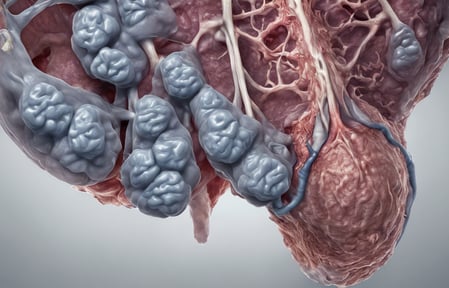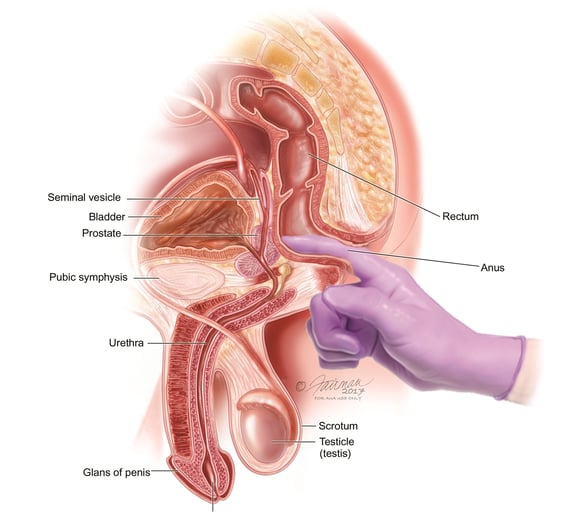Prostate Cancer: Understanding, Coping, and Thriving
In this complex subject of prostate cancer, our blog will try to understand risk factors and symptoms to decoding diagnosis and treatment modalities. Ours blog aims to empower readers with knowledge and insights to navigate their prostate cancer journey with confidence.
BLOG
4/22/20243 min read
I am sitting here wondering if prostate cancer has increased or men are talking more about it?
I did read around this topic and my answer is that celebrities are openly talking about their experience with prostate cancer.
BEN STILLER 48, actor, comedian, director, and writer. He spoke about his level of PSA (Prostate Specific Antigen) on Medium, 7/10. He had his prostate removed.
STEPHEN FRY, a British actor, director, and writer. His level of PSA was 8/10. He had a robotic radical prostatectomy which removed his tumour. He spoke about this in the medical journal Nature. https://www.expressandstar.com/entertainment/showbiz/2024/04
PAUL BURRELL 64, princess Diana’s former butler who spoke about his battle on ITV’s Lorraine show.
And there are still more male celebrities with very similar experiences.
Prostate cancer is a topic that strikes fear and uncertainty into the hearts of many men. It's the second most common cancer among men worldwide but understanding its nuances can help individuals navigate through diagnosis, treatment, and beyond. In this comprehensive guide, we'll delve into the intricacies of prostate cancer, shedding light on its pathophysiology, symptoms, treatments, and natural remedies.
Imagine a bustling city with millions of residents. In this city, there's a small gland called the prostate, often overlooked until trouble arises. Just like any city, the prostate is prone to issues, one of which is cancer. Prostate cancer occurs when cells within the prostate gland mutate and multiply uncontrollably, forming tumours. These tumours can range from slow growing to aggressive, necessitating prompt attention and intervention.
Symptoms
Common symptoms such as urinary difficulties, blood in urine, incomplete emptying of the bladder, incontinence, pelvic pain and frequent trips to the bathroom. These symptoms are aiding in early recognition and diagnosis. A visit to the doctor who will recommend a prostate-specific antigen (PSA) test and subsequent biopsy. A higher level of PSA can confirm worst fears – prostate cancer. However, armed with knowledge and support, embarking on a journey of treatment and recovery, ultimately emerging victorious against the disease.
Treatments
Medical treatment modalities including surgery, radiation therapy, hormone therapy, and chemotherapy. These are more technical, to be discussed with your doctor at the time of assessment. To have pros and cons of each treatment before accepting any treatment.
Natural Remedies:
While conventional treatments play a pivotal role in managing prostate cancer, incorporating natural remedies and supplements can complement medical interventions and promote overall well-being. https://amzn.to/3xNMZ6s
Here are five foods rich in lipoxyerose and antioxidants known to reduce PSA levels:
Tomatoes: Rich in lycopene, a potent antioxidant, tomatoes can help mitigate oxidative stress and inflammation in the prostate gland.
Green Tea: Packed with catechins, green tea possesses anti-cancer properties that may inhibit tumour growth and lower PSA levels.
Broccoli: Containing sulforaphane, broccoli aids in detoxification and supports the body's defense against prostate cancer cells.
Berries: Blueberries, strawberries, and raspberries are brimming with antioxidants, offering protection against cellular damage and reducing PSA levels.
Walnuts: High in omega-3 fatty acids and ellagic acid, walnuts exhibit anti-inflammatory effects and may suppress prostate cancer progression.
Recipe for 2 people:
Tomato and Broccoli Salad Ingredients:
2 ripe tomatoes, diced.
1 cup broccoli florets, blanched.
1 tablespoon olive oil
1 teaspoon balsamic vinegar
Salt and pepper to taste
Optional: chopped walnuts for added crunch
Instructions:
In a mixing bowl, combine diced tomatoes and blanched broccoli florets.
Drizzle olive oil and balsamic vinegar over the vegetables.
Season with salt and pepper, tossing gently to coat.
Garnish with chopped walnuts if desired.
Serve chilled and enjoy the refreshing and prostate-friendly salad!
Kegel exercise strengthen the muscles in your pelvic region. It can help control incontinence in men who had the surgery to treat prostate cancer or enlarged prostate. The exercise consists of clenching the bladder like trying to stop the flow of urine and hold for 5 seconds (webmd.com).
Prostate cancer is a formidable adversary, but armed with knowledge, support, and a holistic approach to wellness, individuals can confront it with resilience and determination. By understanding its intricacies, recognizing early symptoms, exploring treatment options, and incorporating natural remedies into lifestyle choices, one can navigate the complexities of prostate cancer with grace and fortitude. Remember, you're not alone in this journey – together, we can conquer prostate cancer and emerge stronger on the other side.








